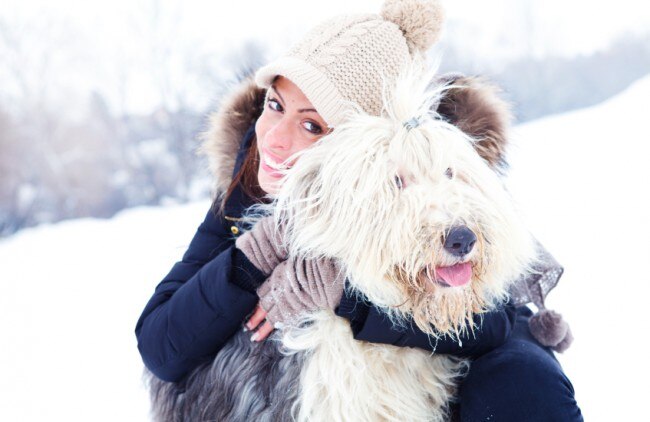“If you need a sweater, he needs a sweater.” Those were the words our vet said to me upon realizing that Charlie, one of our chihuahuas, would not get out of bed all winter long. Why this hadn’t dawned on me earlier was beyond me, but sure enough, as soon as we got Charlie a collection of stylish and comfortable canine apparel, he was back to his regular bossy and begging self.
Cold weather affects our pet pals more than many people realize. We often hear the argument, “They’re animals, they’re meant to be outside.” And while this may be true to an extent, there are many preventable hazards associated with cold weather.
Both dogs and cats should be kept inside, for the most part, in snow and extreme cold conditions. Cats allowed to roam the outdoors often hide under the hoods of cars and can be severely injured when the engine starts. They are also at risk of freezing if they become lost or trapped outside, or worse, eaten by a wild animal.
Short hair dogs can become very uncomfortable and chilled in cold winter conditions. Outfitting them with weather-appropriate clothing, including sweaters, coats or protective booties, can help to protect them against physical injuries associated with the cold. Resist shaving long-haired dogs in the winter, as their fur is obviously natural protection against the elements. It’s also important to wipe down your dog’s legs, paws, and stomach after a walk or playtime outside in the snow to prevent them from accidentally ingesting road salt or other ice-melting chemicals.
The cold can be especially hard on very young and senior pets. It can be difficult to convince puppies to go outside to “do their business” in the snow and extreme cold. The same goes for older dogs. If you’re in the middle of house training your puppy or your senior dog is flat out refusing to go outside, you can relieve everyone’s stress by investing in some house training pads to get you through the winter.
Older dogs and cats may suffer from joint and ligament pain and arthritis, which is exasperated in cold weather. Make sure to give them warm sleeping areas away from drafts and cushioned from the cold, hard floor, and consider giving your senior pet a joint supplement to help promote health and flexibility.
With proper care, you and your pet can enjoy the long winter nights without worry. And believe it or not, spring is right around the corner!

